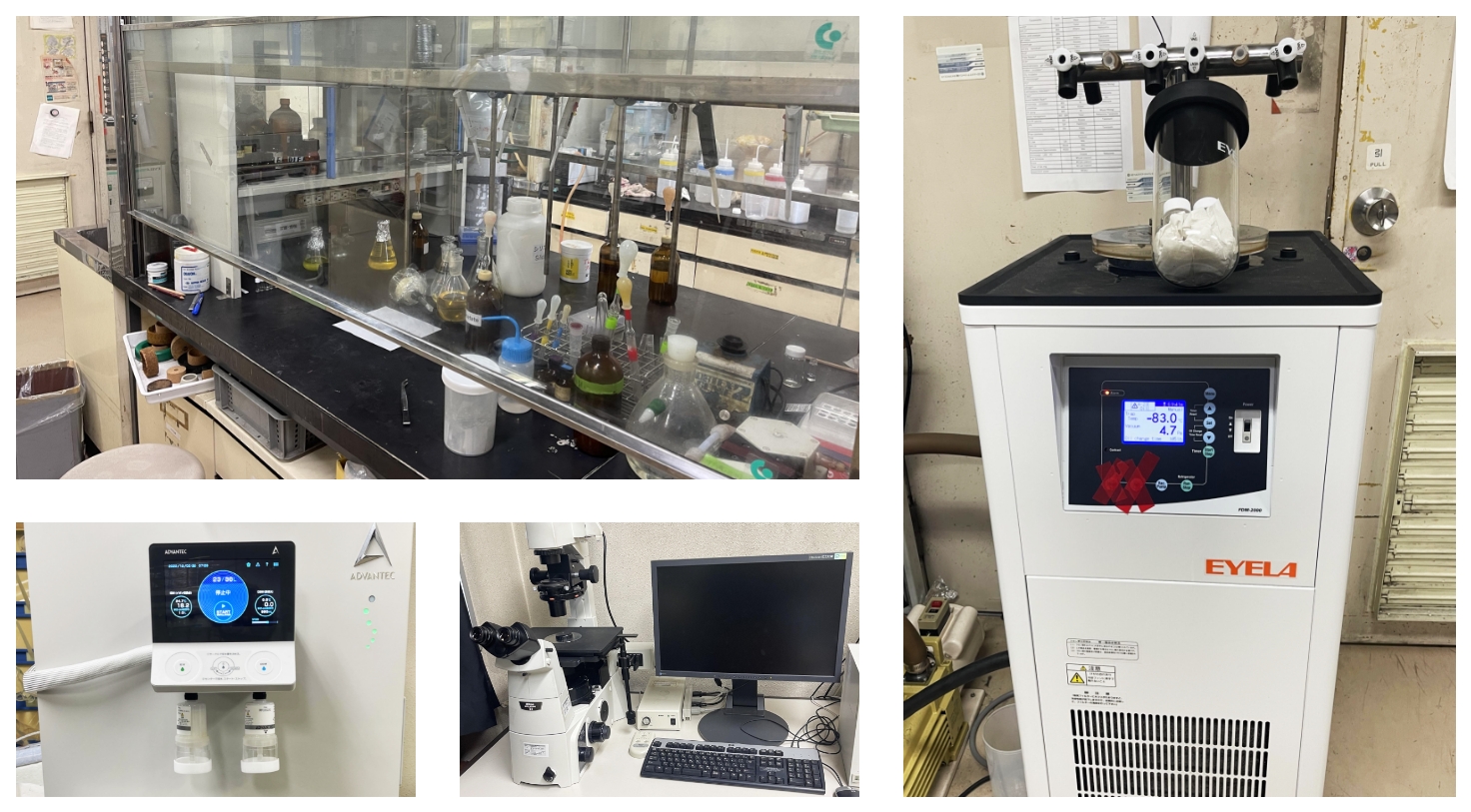About the Laboratory
Laboratory
There are three laboratories: an organic synthesis laboratory, a molecular biology and analysis laboratory, and a cell engineering laboratory.
Organic Synthesis Laboratory
The organic synthesis laboratory is equipped with an environment and facilities (HPLC, lyophilizer, etc.) for the synthesis and purification of amino acid derivatives, peptides, fluorescent dyes, nanoparticles, etc.
Molecular Biology Laboratory
The Molecular Biology Laboratory is equipped with an environment and facilities (PCR, clean bench, shaker, centrifuge, electrophoresis system, gel imager, etc.) for genetic engineering experiments, protein expression and purification experiments using E. coli culture, and phage display experiments.
Cell Engineering Laboratory
The cell engineering laboratory has an environment and equipment (safety cabinet, CO2 incubator, fluorescence microscope, plate reader, etc.) for cell culture and observation.
In addition, research is conducted using the well-equipped common equipment (NMR, mass spectrometry, electron microscope, fluorescence microscope, various spectroscopic measurement devices, etc.) of the School of Life Science and Technology and the Open Facility Center.
Translated with www.DeepL.com/Translator (free version)

Advantages of Our Laboratory
- Based on chemical biology research that successfully utilizes both organic chemistry (chemistry) and molecular biology and cell engineering (biology), students can be involved in biomaterial development and peptide drug discovery. Students interested in biology as well as organic chemistry will have a wide variety of experiences.
- In addition to chemical biology research, research related to the development of functional materials such as peptide-based supramolecular nanomaterials and peptide-modified nanoparticles is also conducted.
- Students can experience a series of steps from synthesizing molecules of their own design to investigating the functions of the synthesized molecules.
Seminars and Study Groups
Progress meeting (every week)
All members of the laboratory participate in this meeting. Each project team organizes, presents, and discusses the overall progress of their research. The meeting reviews mid- and long-term goals and formulates strategies for presentations at academic conferences, etc. (The assigned team member is assigned to this meeting once a month.)
Paper meeting (every week)
This is a study meeting attended by all laboratory members. The assigned staff member carefully reads a recent paper of interest, presents the contents on behalf of the author, and discusses the paper. This is an effective way to broaden one’s perspective on research (the person in charge of this meeting rotates once every three months).
Weekly report
The results of the week’s experiments are summarized and discussed with the faculty to discuss solutions to problems faced and strategies for the next week.

